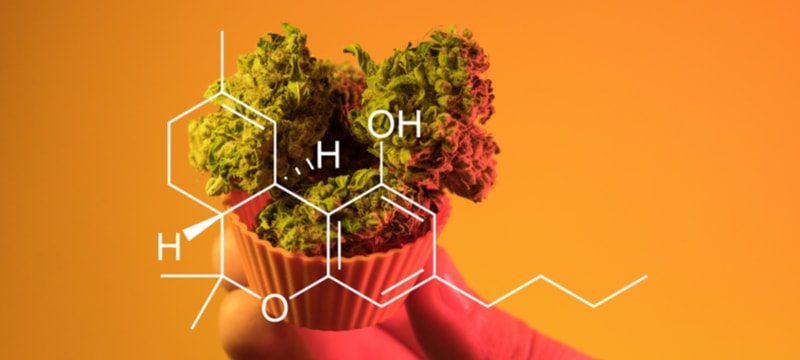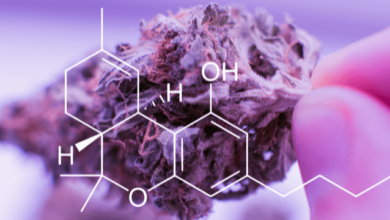
Table of Contents
How widespread is cannabis use?
Cannabis is one of the most widely used drugs in the world. In the past decade, there has been a 60% growth of cannabis users in the world, with an estimated 200 million users per day. It seems that every week now that a new country plans to legalise marijuana and allow it for medicinal purposes. Couple that with its presence in pop culture and media over the past number of decades and it’s easy to see why its popularity is growing. Unfortunately, with increased usage, the levels of cannabis abuse and cannabis addiction have also grown.
What is cannabis use disorder?
Young people are most at risk of drug addiction especially cannabis addiction as it usually the first drug young people would use. However, to is some research that where cannabis is legal the usage of the drug among teen can drop. So it's not all bad news. While many consider eighteen-year-olds to be adults, the truth is that our brains don’t fully develop until we are 25. This means that drug abuse by young people under this age may result in some long term effects. It is a common misconception that cannabis is not addictive. THC, which is the main psychoactive component of cannabis, is psychologically addictive.
Cannabis addiction is more commonly known as cannabis use disorder. It is defined as “the continued use of cannabis despite impairment in psychological, physical, or social functioning.” Which basically translates to using cannabis even though it’s having a notable negative effect on your daily life. As drug abuse regretfully grows, there has also been an increase in cannabis addiction treatments available.

Addiction treatment
Over the past number of years, there has been a seachange in the way that people view and treat mental disorders and addictions. With this greater understanding and acceptance, drug addiction is no longer the black mark that it was a few decades ago. Treatment for marijuana now takes on many forms. Previously, the most popular way to quit was “cold turkey.” We’ll look at this in greater detail further on, but there are now many other treatments available.
Cognitive Behavioural Therapy (CBT) is a popular form of cannabis addiction treatment. This method aims to change how you think and act by changing thought patterns. The 12 Step Program and Motivational Enhancement Therapies are other popular behavioural therapies. Support groups have also had great success. Opening up and talking about our problems and addictions with people in similar situations has proven to be an effective treatment method.
Cannabis withdrawal
As with any addictive substance, when you stop using the drug you may suffer from withdrawal symptoms, side effects and sometimes even long term complications. This is known as a withdrawal syndrome. They vary from drug to drug and user to user, but the core concepts are the same. The longer you stay away from using it, the more likely you are to beat your cannabis addiction. Reusing the drug will put you back to square one.
Specifically to marijuana withdrawal, the symptoms are fairly well known. Most common is a feeling of irritability and aggressiveness that can be triggered in nearly any situation. This is not helped by the potential inability to get a good night's sleep during the withdrawal. Some people have also noted the onset feeling of depression, melancholy and no desire to eat.

What are the side effects of quitting marijuana cold turkey?
What is cold turkey?
Going cold turkey is when you instantly cut something out of your life. It is mainly applied to people who are quitting addictive substances or vices that cause health problems. Cold turkey is an effective cannabis addiction treatment option, but you need to be aware of your behaviour and come up with a plan to counteract your urges.
How to go cold turkey?
Some of us are social smokers. Maybe you like to join your friends for a joint before going into the cinema or going to a concert. By talking to your friends and letting them know that you’re quitting they will stop offering it to you and remove that aspect of it from your life. Some people have a pattern to their smoking. “Wake and bake” is a common form of smoking before you even begin your day. It is important to try and break the association between these two. Forcing yourself to get up without smoking is a brute force way of breaking the habit. Others prefer to replace smoking pot with something less dangerous, like drinking coffee.
People who have quit cold turkey have said that they smoked marijuana when they were bored, simply for something to do. Keeping your hands busy with a stress ball, or taking up a hobby like journaling has helped people quit. Some cannabis users have self-medicated to cope with mental health problems. This harmful approach can be broken by quitting cannabis and seeking professional help like a counsellor or support groups.
Disadvantages of going cold turkey
According to the National Institute on Drugs, going cold turkey can also have some side effects on our bodies. These can make people want to start smoking again. People who are quitting need to realise that there will be side effects and that they need to have coping mechanisms to deal with it. Withdrawal syndrome will vary from person to person, but there are some common mental and physical symptoms that most people suffer from. Here are some things to expect when going cold turkey:
- Sweating
- Stomach upset
- Irritability
- Restlessness
- Bouts of anger
- Anxiety
- Depression
- Decrease in appetite
- Insomnia and cbd
- Nightmares
- Loss of focus
- Lack of motivation
- Decreased sex drive
- Extreme cravings for the drug

How to cope with the symptoms of going cold turkey?
As these symptoms and side effects are to be expected, it is important to have a plan on how to deal with them. Again, everybody is different so it may take a couple of tries to find the right treatment options that work for you.
Drinking lots of water is a great start to detoxifying your body of cannabis. Drinking lots of water can also help with the irritability and can help you feel more energized. You can also help kick start the natural endorphins in your brain by exercising.
Exercising may seem like the last thing you’d want to do when going through cannabis withdrawal syndrome but it can be a great treatment for marijuana withdrawals. Exercise releases endorphins in your brain and is also a hobby that you can use to distract yourself from withdrawal syndrome. Set yourself achievable goals. Running a kilometre further every day or lifting heavier weights can greatly contribute to long term recovery.
How do I cope with quitting marijuana?
There is legal UK CBD oil to buy, also CBD flower with no THC that may help. Wanting to quit smoking pot is the first step in quitting. That want and desire needs to stay in your mind at all times. Once you make that decision to quit, you have the strength to do so. It won’t be easy, but when the mood swings come and the restless night sweats keep you up, you have to keep your goal in mind. There are some proactive steps you can take, like eating well and exercising. But all help doesn’t have to come from within. If you have an animal of pet who is anxious but helps you to relax, dogs can take CBD and keep you company if it helps.
There are some excellent external sources of help that will be invaluable to you. Talking to your friends and family is a good place to start. Others have also sought help from therapists and support groups like 12-Steps Program. Some quitting techniques are more suited to others as well. Cold turkey might not work for you, but maybe weaning will. CBD is also being touted as a potential way someone could CBD benefits help get over their addiction.
Cold turkey or weaning?
Cold turkey can be seen as a hardcore way to quit. It’s immediate, tough and works great for some people. But some people are simply not suited to it. They may find it too tough and when they relapse they end up dejected and unmotivated to try again. For these people, weaning themselves off marijuana may be the best place to start. Gradually reducing smoking marijuana over a certain time frame can give measurable results and show progression to the final goal of quitting.
Family and Friends
Opening up to your friends and your family about your cannabis addiction can really lay down the groundwork for a successful long term recovery. Everyone knows that some people find marijuana addictive. So when someone, never mind a close friend or family member, announces that they are addicted there’s no shame.
Friends and family will appreciate you trusting in them and allowing them to help you get to where you want to be. They’ll be there for you when you feel like smoking again or are suffering from the physical symptoms of quitting. For most of us, our friends and family will be delighted to help, so if you have that option available to you, use it.

Therapy and support
Sometimes there are problems that friends and family just aren’t qualified to help with. Or perhaps you’re not ready to talk with those close to you about your health problem. This is when therapists and other support groups come into play.
Therapists can help you in a wide range of ways. Some specialise in Cognitive Behaviour Therapy which can be very effective in a short term way to help you break your smoking habits. CBT tries to change your reaction to your smoking urges and helps disrupt unhelpful thought patterns that lead you to rely on cannabis. Other forms of therapy like emotive therapy can help get to the root cause of why you smoke and tries to deal with that initial stimulus.
Group supports are another great way to cope with quitting marijuana. The 12-Steps Program is the most well-known group programs. These support networks involve people being open and honest with a group of their peers who are either also trying to quit, or who have been sober for a while. Newcomers can be assigned sponsors who volunteer themselves to help guide people on their journey to quitting. CBD benefits may help too if you use CBD tinctures.
Eat healthy foods
Our diet has a huge effect on our health. We all know that we should be eating healthier. Cutting out sugars and getting our 5-a-day is even more important when trying to end your cannabis addiction. The key to a good diet is making sure that it is well rounded. Eating fresh fruit and vegetables with healthy grains and carbohydrates is a good start. For protein look towards fresh fish, beans and meats without any unnecessary, nasty additives.
One of the side effects of marijuana withdrawals is a loss of appetite. But it is important to remember that even if you don’t feel hungry you must feed your body the nutrients it needs. Adding cranberry juice to your diet can also help flush out toxins.
Benefits of quitting marijuana
There are many benefits to overcoming your cannabis addiction, both physical and psychological. The reasoning and motivation for quitting cannabis may differ from person to person, but the vast majority will experience the same benefits.
Improved relationships
Smoking an excessive amount of cannabis can take a toll on our relationships with the people closest to us. One of the effects of marijuana abuse is that you can become anxious and introverted around people. This can reduce the quality of time spent with friends. Drug abuse can also affect our memory. Great chats and conversations with friends and family can be easily forgotten is you are constantly high. Overcoming our cannabis addiction allows us to be more present amongst loved ones and a better friend.
More socially active
Life after a cannabis addiction can be more fulfilling. Cannabis induced anxiety can hinder us making new friends and striking up conversations. People who have quit cannabis have noted that they are much more proactive in social situations and are able to hold entertaining conversations with new friends.
Support group
Those who have quit with the help of a support group like the 12-Step Program feel reassured that they have a network there to help them. This can inspire confidence and allow them to get on with the rest of their lives. There is also a subreddit r/leaves full of people who have quit or are in the process of quitting which a lot of people say has helped them give the cannabis up for good.
Improved health
An overall improvement in general health can also be expected. While a cannabis addiction may not be life-threatening it can still have long term repercussions for our bodies. Our lungs will have increased oxygen capacity and be less susceptible to cancer. Skin will become smooth and shiny, while males will see an increase in healthy sperm production. For those suffering from heart palpitations, you will see them decreased as well as a reduced risk of heart attacks.
Restoration of brain function
With prolonged use of cannabis, THC can bind to the cannabinoid receptors in your brain. This can lead to a decrease in memory and learning function. After successfully going through some treatment options you can expect to have a sharper memory and increased performance in daily tasks.

Quitting cannabis timeline
While there is no one-size-fits-all timeline for everybody there are enough similarities that we can estimate what will happen. In the upcoming days and weeks, you will go through a few different stages. Each will have their own challenges, but keep focused on the goal of quitting and you can get through it! After just a few days or weeks you’ll begin to see the benefits for yourself.
1-3 days
The first thing you will notice will be how much more irritable you’ll become. Your body will be used to getting its THC fix and will be crying out for it. With this comes restlessness and tremors. You can help overcome this by playing with a stress ball or taking up a hobby to help distract your mind. You may also find yourself unable to focus. This is when being open with friends and family is great. Rather than becoming upset when you can’t engage in conversations our friends can sympathise and understand what you are going through.
You may also start to suffer from sleep disorders like insomnia. This can be the toughest part of quitting, but instead of reaching for cannabis to help you sleep consider using sleep aids. White noise simulators, a glass of warm milk and not using any screens while in bed can all help with a good night’s sleep. If problems persist, go see your doctor and inform them of your cannabis withdrawals and lack of sleep.
Anxiety can also start to creep in. Again, it is important to realise that this is part of overcoming your cannabis addiction. Smoking marijuana to curb your anxiety may seem like an attractive option, but you’ll just have to start the process all over again. Try to remember how much hard work you’ve put in to get this far. If the anxiety does not fade away, again go speak with your doctor and see if they recommend prescribing anti-anxiety medication.
4-7 days
Congratulations on getting to the next stage! By now you’ll have put in a lot of work and you’re going in the right direction. The next stage throws up new problems but you can get through these too.
The uncomfortable combo of suffering from chills and sweating is common in this stage. As unbearable as it may be, keep in mind that it will pass and that you will move on to the next stage.
This stage can also wreak havoc on your digestive system. Expect to have a loss of appetite than gives ways to weight loss. Having a good support system around you like family or a rehab centre can help monitor this. While some weight loss may be expected, it is very important to eat healthily and regularly. People also complain of feeling nauseous and suffering from abdominal cramps during this period.
4-14 days
By now you will have no doubt that marijuana withdrawal is real! In this stage, the symptoms will begin to change from physical to psychological. The loss of appetite is the straggler of the physical symptoms and you will still have to deal with this. Try approaching eating as a task that you must do rather than a luxury.
Mood swings will become common. Bouts of irritability can quickly lead to aggression and even into a mild depression. Being able to talk with people who have gone through the same process can help. If you have a nearby Marijuana Anonymous, it would be a good idea to go and chat with people there.
Sleeping may still also be an issue. It’s vitally important that we sleep well to let our bodies rest and rid ourselves of toxins that are still left in our system.
14+ days
By now you should be free from physical symptoms and only suffer from a few remaining psychological complaints. If you start to cough regularly, don’t worry, it will pass in time. The main things to look out for here are mild depression, lack of motivation and anxiety. These problems may persist for a while, so it’s best to closely monitor how you are feeling. This can be done through journaling or seeing a therapist regularly.
Can quitting marijuana cause anxiety?
Quitting marijuana can cause anxiety. It’s a common withdrawal symptom that should not be feared. Instead, try to view this stage as another progression in your recovery. There are many ways to deal with anxiety.

What is anxiety?
Anxiety disorder is defined as “an emotion characterized by feelings of tension, worried thoughts and physical changes.” There are everyday situations that can make us feel tense or worried, but it is important, and sometimes difficult, to differentiate normal anxious feelings and serious anxiety.
A normal level of anxiety helps us to stay alert. Feeling anxious while walking through an unsafe area, alone and at night is perfectly normal. If feeling anxious when somebody says hello or if you have trouble controlling your worrying, you may suffer from anxiety. People who suffer badly from anxiety can also suffer from anxiety attacks.
What is an anxiety attack?
An anxiety attack is characterized by feelings of intense fear and apprehension and accompanied by palpitations, shortness of breath, sweating, and trembling. They can happen with or without warning. Some triggers can be getting stuck in an elevator, public speaking or when thinking about debt.
Anxiety attacks are particularly scary as you seemingly lose control during it. It can be hard to pull yourself out of them, but it is important to remember that it will pass. Most panic attacks last up to 10 minutes long, with only very rare cases lasting up to 30 minutes.
Some common symptoms of a panic attack are:
- Surge of overwhelming panic
- Feeling of losing control or going crazy
- Heart palpitations or chest pain
- Feeling like you’re going to pass out
- Trouble breathing or choking sensation
- Hyperventilation
- Hot flashes or chills
- Trembling or shaking
- Nausea or stomach cramps
- Feeling detached or unreal
How to deal with anxiety?
The best way to deal with anxiety is with the help of a medical professional. Having an open and frank discussion with your doctor can be a big benefit. Speaking with a person who has experience in dealing with addiction treatment can be a great first step in dealing with anxiety. The doctor may recommend anti-anxiety medication. Modern medicine has come on leaps and bounds in recent years and now most medication has either minimal or no side effects. CBD has been known to help people reduce their anxiety as well as having no major side effects.
Counselling or therapy are other very effective ways to deal with anxiety. Speaking to a professional and understanding the problem can go a long way in solving it. They are also trained to help with exposure therapy. If they feel that you are ready, a therapist may ask you to challenge yourself to face your fear and overcome a trigger for your anxiety.
Again eating well and exercising are great ways to deal with anxiety. Joining a local sports team is a fantastic way to meet new people, exercise more and get your life back on track!
Coupling these methods with sober living should lead to an anxiety-free life.
Can you get depression after quitting marijuana?
Quitting marijuana can also cause depression. Depression may take on many forms. Some will not suffer at all, while others may experience mild symptoms, which an unfortunate few may have longer, more severe episodes. Likewise to anxiety, there are multiple tried and tested ways to deal with depression.

What is depression?
Depression is defined as having feelings of severe despondency and dejection.
What does depression look like?
Depression takes on many forms. Some symptoms are hardly noticeable on their own, while others are very plain to see. Depression can start with a lack of motivation, particularly if it is regarding something that you usually love doing. If you’re a social butterfly who loves to hang around with your friends, but all of a sudden have no interest in doing that anymore, that may be a sign of depression. Others have noted not tasting food anymore, or colours not being vibrant and flowers having no scent. These are all indicators of you potentially having depression.
Larger and more unavoidable signs come with a more acute cases of depression. If you find yourself sleeping all day and unable to get out of bed this may be a sign of depression. If suicidal thoughts begin to develop this is a sign of extreme depression and professional help must be sought immediately.
Symptoms of depression are not limited to these few examples. It can take on many forms, including:
- continuous low mood or sadness
- feeling hopeless and helpless
- having low self-esteem
- feeling tearful
- feeling worthless or guilt-ridden
- feeling irritable and intolerant of others
- finding it difficult to make decisions
- not getting any enjoyment out of life
- irritable mood
- feeling anxious or worried
- harming yourself
- CBD acne cream helps you feel better
How to deal with depression?
Depression has become prevalent in today's world. More and more people are opening up about it and seeking help. As a result, there are multiple ways to deal with the problem.
If you think you may be suffering from depression it is absolutely vital that you go see a doctor. If diagnosed with depression you can begin to make your recovery. Doctors may prescribe antidepressants. Antidepressants are designed to help keep you stable. They’re not a magical fix that will instantly make you better, but combining them with other practices is a great way to start your fight with depression.
Therapy is extremely effective in dealing with depression. Depression can be hard to beat as it is often unidentifiable. We can have feelings of utter hopelessness and have no idea why. Therapists are highly trained in helping people with depression. They can help give a face to the problem and identify ways to overcome it. Just like people, all therapists are different. As you’ll likely be spending hours talking to them, it is important that you find a therapist that you feel comfortable with and are willing to open up to them. CBD is also another way that people are turning to help cope with their depression. This is because CBD oil doesn't give you any of the psychoactive effects that cannabis normally would.
Mindfulness has been a bit of a buzzword when it comes to mental health these days. But the fact of the matter is that mindfulness can help deal with depression. There’s no shortage of apps out there that can help you meditate, reflect and be present. Sometimes this can distract us from the depression and break the cyclical depressive thoughts.
Keeping a daily journal of your feelings is another popular mindfulness technique. This helps you analyse your emotions and keep track of how they change from day to day. Another easy thing that we can all do is simply stop, breathe and congratulate ourselves on doing something that day. A little bit of self-care can go a long way.
Trying to maintain a normal, healthy life is also very important when tackling depression. If friends ask you to come hang out, you must try your best to do so, even if it’s the last thing that you want. Humans are social beings and we need to be around, and interact with, other people. We also need to exercise and eat a healthy diet. Combining these small components can be an effective weapon against depression.
We need more and better CBD products our there for people to buy and from reputable UK CBD wholesale suppliers.
Conclusion
Dealing with a cannabis addiction can be daunting. Initially it may seem that it is an insurmountable task. But with the help of others and knowing that things will get better, it needn’t be as scary as first thought.




